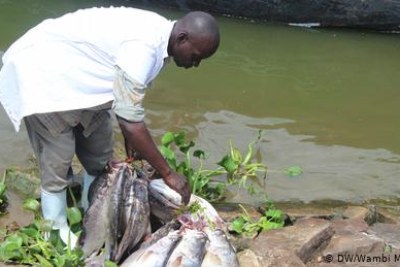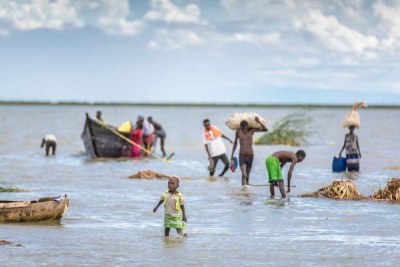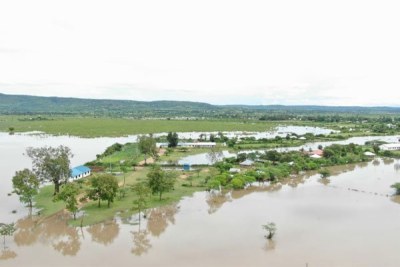-
Kenya: Kenya's Rift Valley Lakes Are Rising, Putting Thousands At Risk - We Now Know Why
The Conversation Africa, 16 January 2023
The East African Rift Valley sits between the Afar Triangle in Ethiopia and Mozambique. Within it lie a series of freshwater and alkaline lakes organised like a string of pearls. Read more »
-
Kenya: Report Offers Insights Into What Caused Rise of Rift Valley Lakes
Nation, 2 November 2021
Climate change, human activities and movement of tectonic plates are the reasons for the rise of Rift Valley lakes, a new report says. Read more »
-
Kenya: Experts - Why the Water Levels of Rift Valley Lakes Are Rising
Nation, 11 January 2021
Whatever is happening underneath the Rift Valley has continued to intrigue scientists eager to understand why some of its lakes are overflowing while others are drying up . Read more »
-
Kenya: Why Lakes in the Rift Valley Are Rising at Alarming Rate
Nation, 17 November 2020
It is a deluge that has puzzled not only Rift Valley residents but also Kenyans all over the country. Read more »
Why Are Kenya's Rift Valley Lakes Rising, Threatening Thousands?
The Kenyan lakes in the Rift Valley have witnessed significant water level increases recently, ranging from 21% for Lake Naivasha to 123% for Solai. Homes, schools, and hospitals have been flooded. A Kenyan government report estimates that about 80,000 households - 400,000 people - have been affected by the floods since 2010. There are grave economic consequences since agricultural fields and tourism infrastructure have been damaged, reports Mathew Herrnegger for The Conversation.
Data collected from research show that increases in rainfall since 2010 explain the lake level rises. While no scientific study has yet been published explaining the recent increase in water levels, there has been no doubt that an activity deep into the earth's crust could be triggering this overflow aided, perhaps partially, by human activities. Human activity and changes in underground permeability have been advanced before to explain the lake level rises. The results of the study illustrate that surprisingly minor changes in the water balance are enough to explain the lake level rises.
The regional climate in Eastern Africa has shown significant variability in the past, with long-lasting periods of severe drought but also wetter periods as we are currently observing. Water level fluctuations in the Rift Valley lakes are not new. Lake Naivasha, for instance, was reduced to a puddle around 1850 and particularly low levels persisted throughout the 1940s and 1950s.
InFocus
-
The world-famous Lake Nakuru was once a pearl in the chain of lakes that dot the great Rift Valley. Now the lake is no longer a sight to behold, reeling under the pressure of ... Read more »
-
Rift Valley lakes appear to be reclaiming territories they lost millions of years ago. Whatever is happening underneath the Rift Valley has continued to intrigue scientists eager ... Read more »
-
Rift Valley's rapidly rising water levels have reportedly swallowed homes, utilities and displaced animals in parks. Residents and scientists have been left baffled, as rain has ... Read more »





